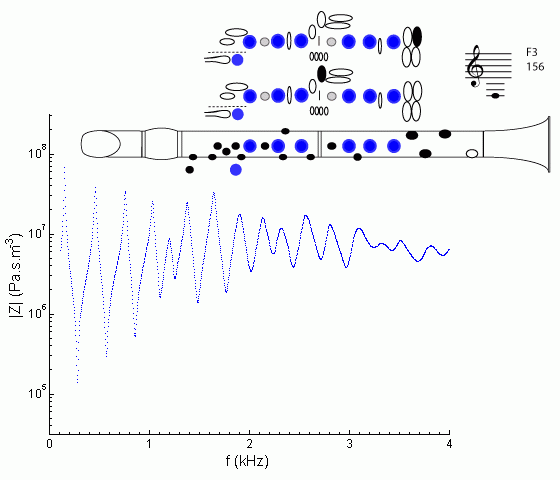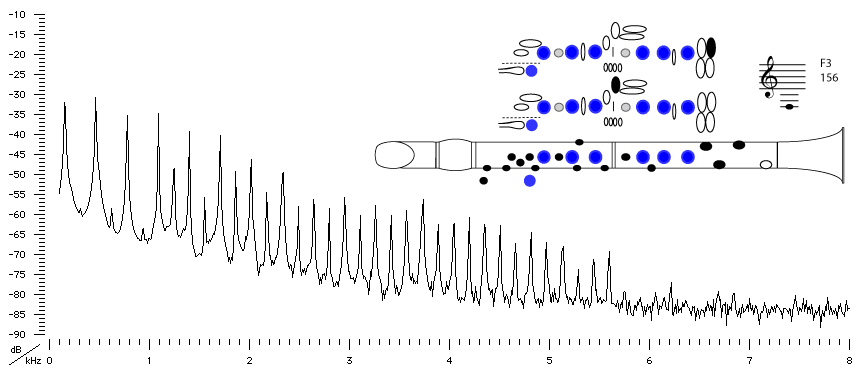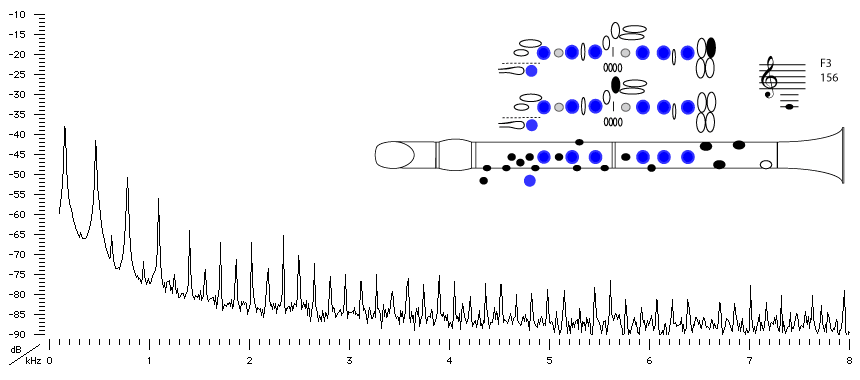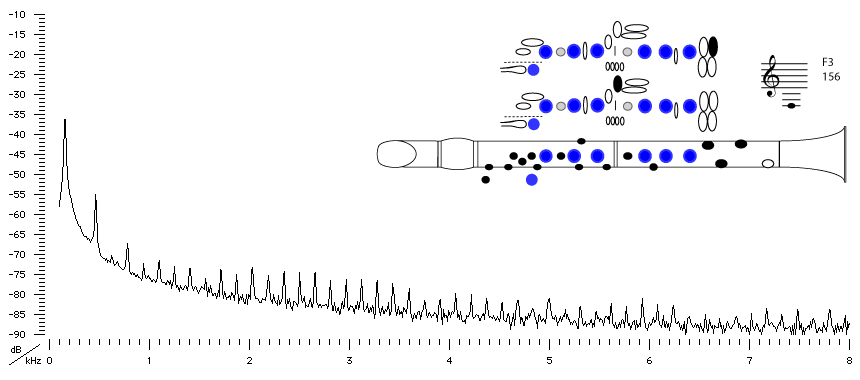| Acoustics of the clarinet |
Bb clarinet |
F3 |

|
Fingering Acoustic schematic Non-specialist introduction
to acoustic impedance Notes are the written pitch. |
At frequencies below about 1.1 kHz, this curve looks rather like that for E3, but raised in frequency because the tube is effectively shorter because of the open tone hole (see tone holes). At higher frequencies, however, the waves propagate past the open tone hole with greater ease, and the situation is more complicated, which gives rise to the irregular shape around 1.2 kHz. (At the highest frequencies shown here, the waves "hardly notice" the open tone hole and the curve is very much like that for E3, and not raised in frequency. See the discussion in cut-off frequency.
For general comments about the chalumeau register, see E3.

Sound spectrum
of a Bb clarinet
played using fingering for F3 forte.
For more explanation, see
Introduction to clarinet acoustics
For this note (and also for E3, G4 and A6), we show spectra for different loudness or dynamic levels (f, mp and pp). Note that, as the player blows harder, the level of the fundamental varies only a little: more important is that more high harmonics appear and that the harmonics already present become stronger. These extra and stronger harmonics change the timbre of the sound, making it brighter or less mellow: listen to the sound files. They are also very effective at making it louder, because our ears are most sensitive in the range 1-4 kHz. (See What is a decibel?) Note also that the base line for all spectra is a broad band 'noise' containing all frequencies. This is due to the turbulence of air passing through the reed opening, and it is an important part of the characteristic clarinet sound, particularly at the beginning of a note.
For a discussion of how the reed motion produces different timbre and dynamic levels, see Playing softly and loudly.

Sound spectrum of a Bb clarinet played using fingering for F3 mezzopiano.
![]()
![]() You can hear F3 mezzopiano played on a Bb clarinet.
You can hear F3 mezzopiano played on a Bb clarinet.

Sound spectrum of a Bb clarinet played using fingering for F3 pianissimo.
![]()
![]() You can hear F3 pianissimo played on a Bb clarinet.
You can hear F3 pianissimo played on a Bb clarinet.
|
Contact:
Joe Wolfe
/ J.Wolfe@unsw.edu.au |